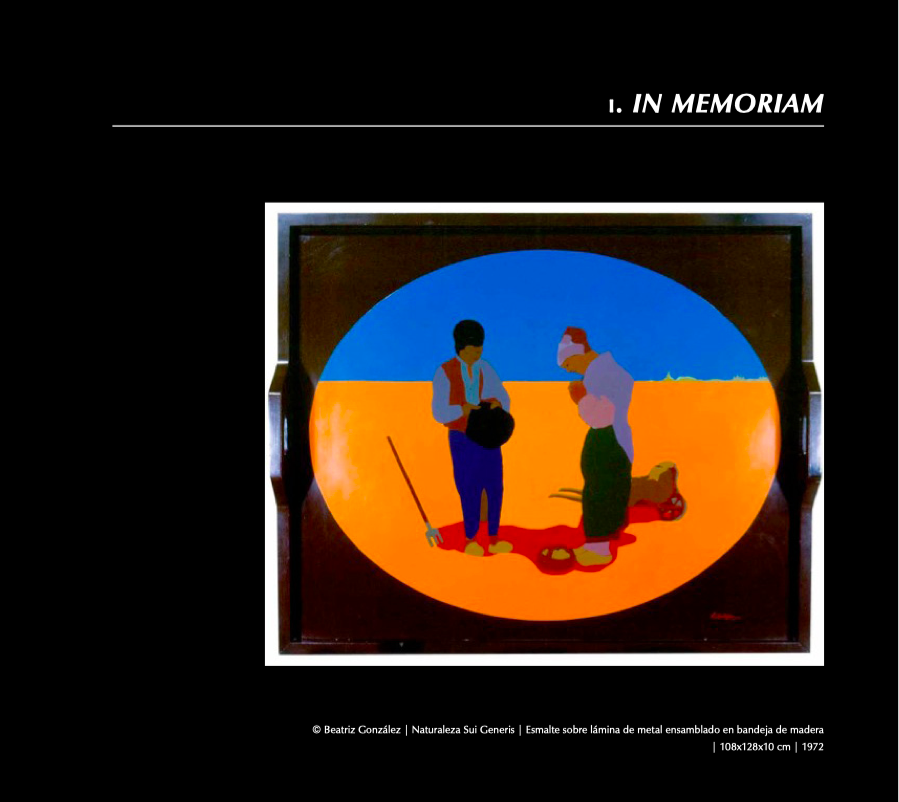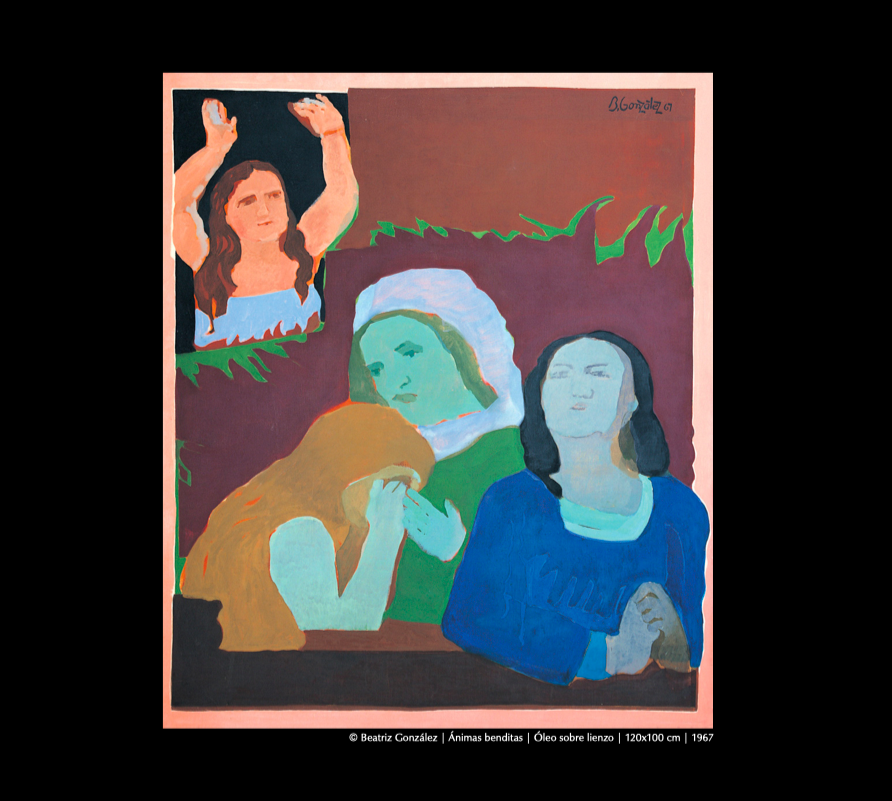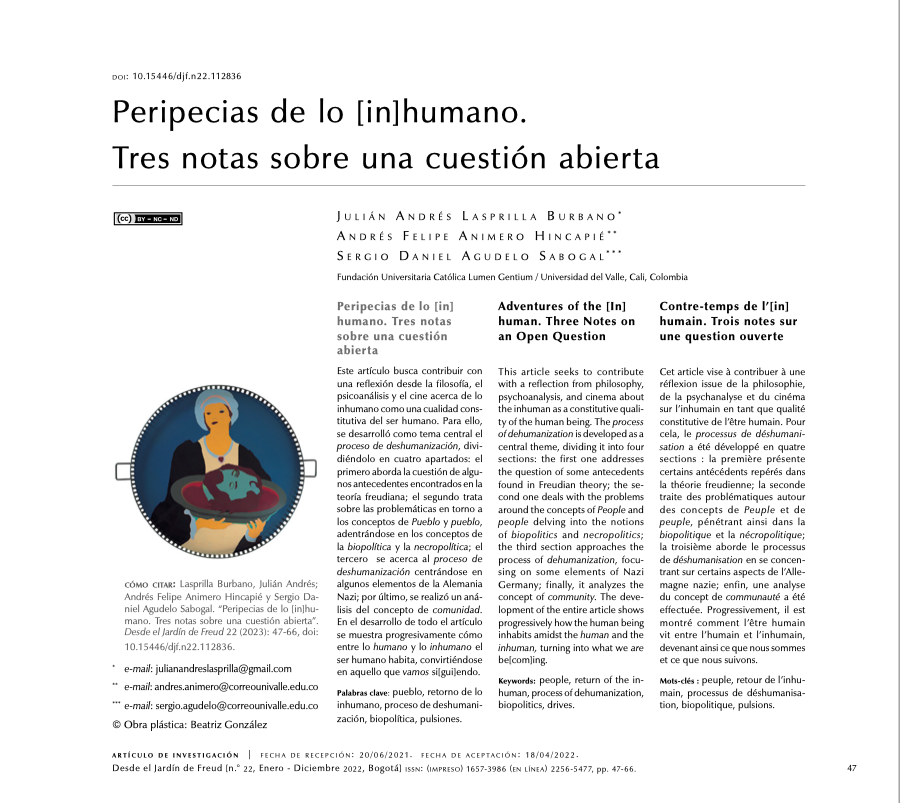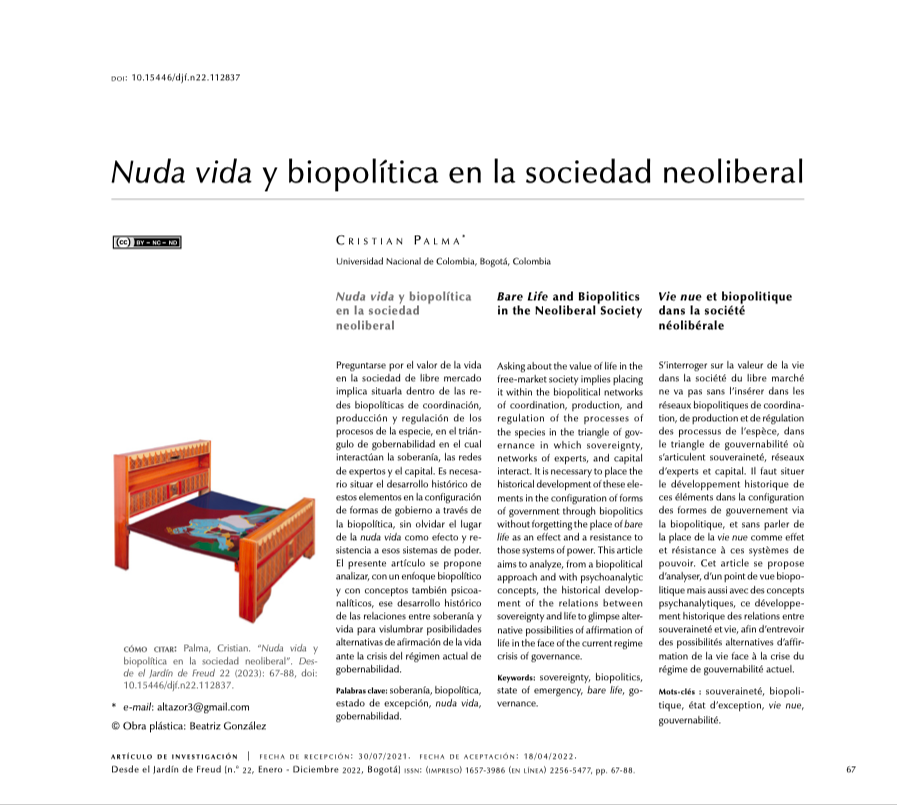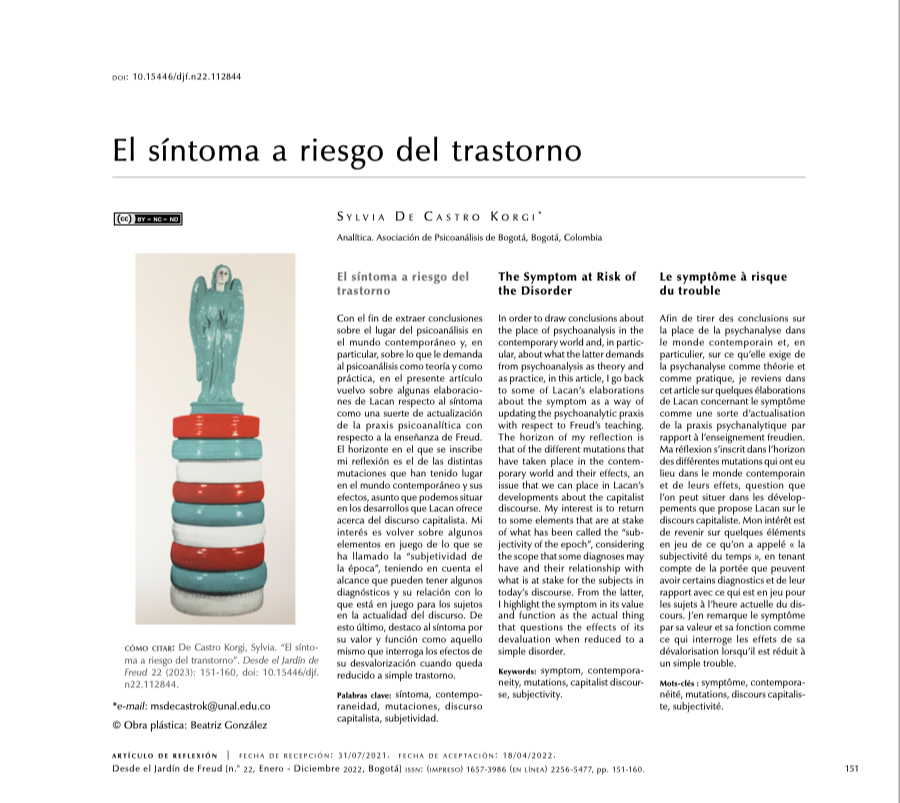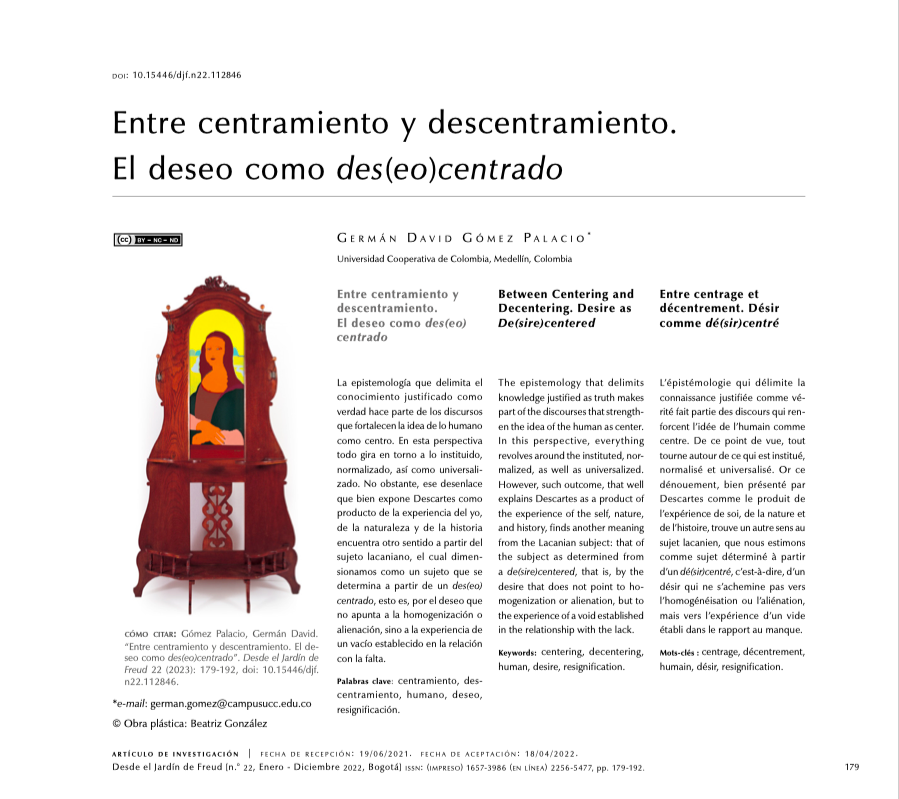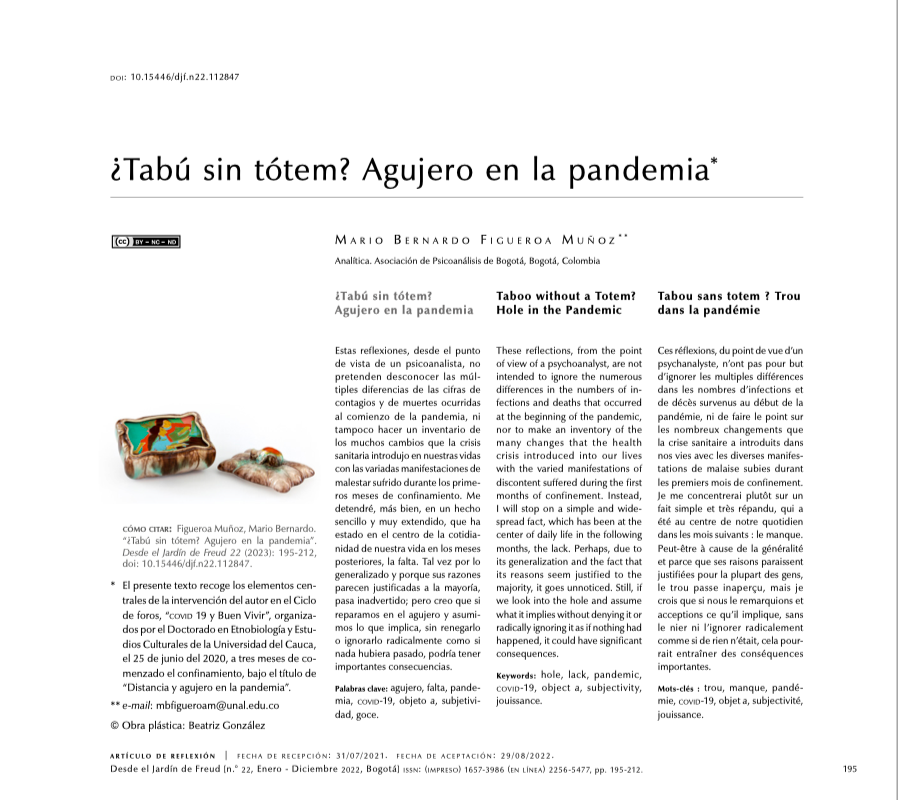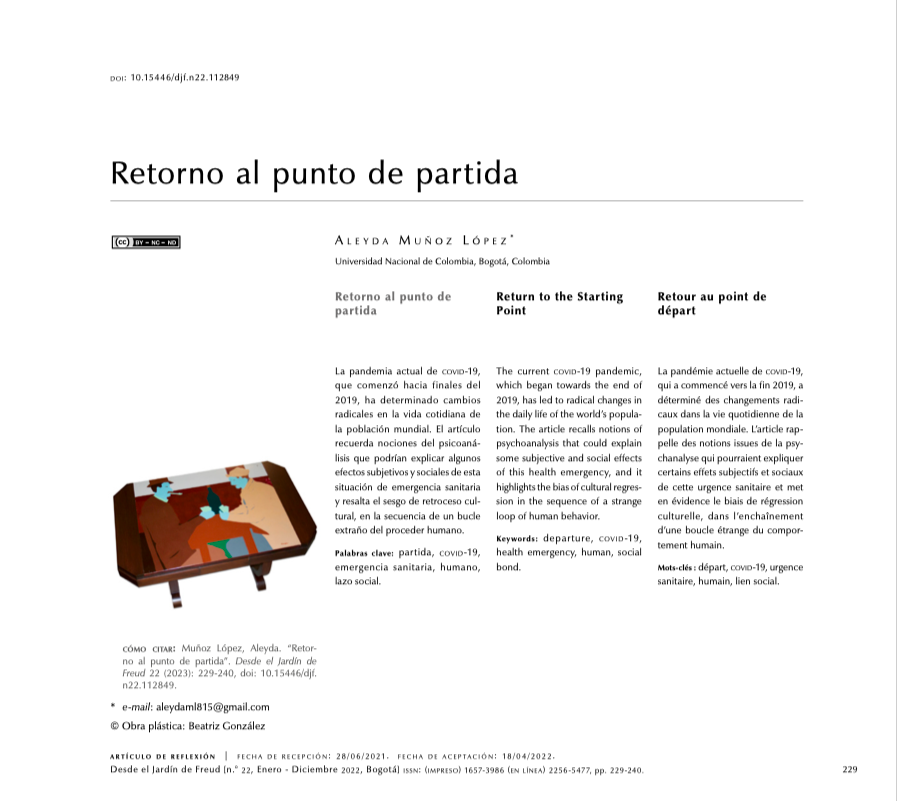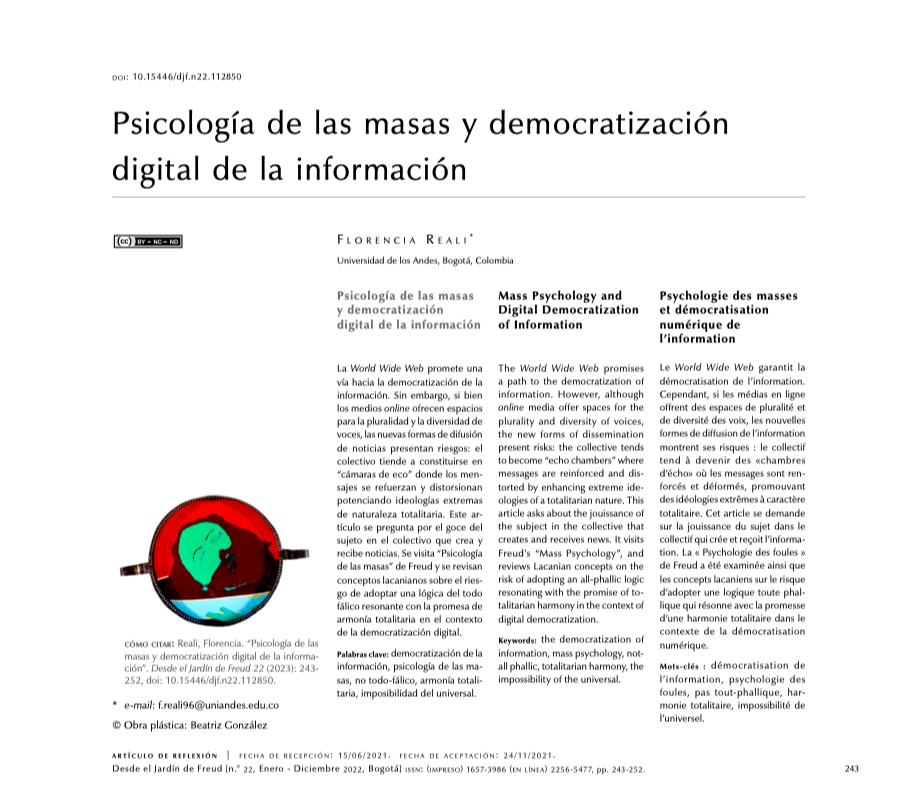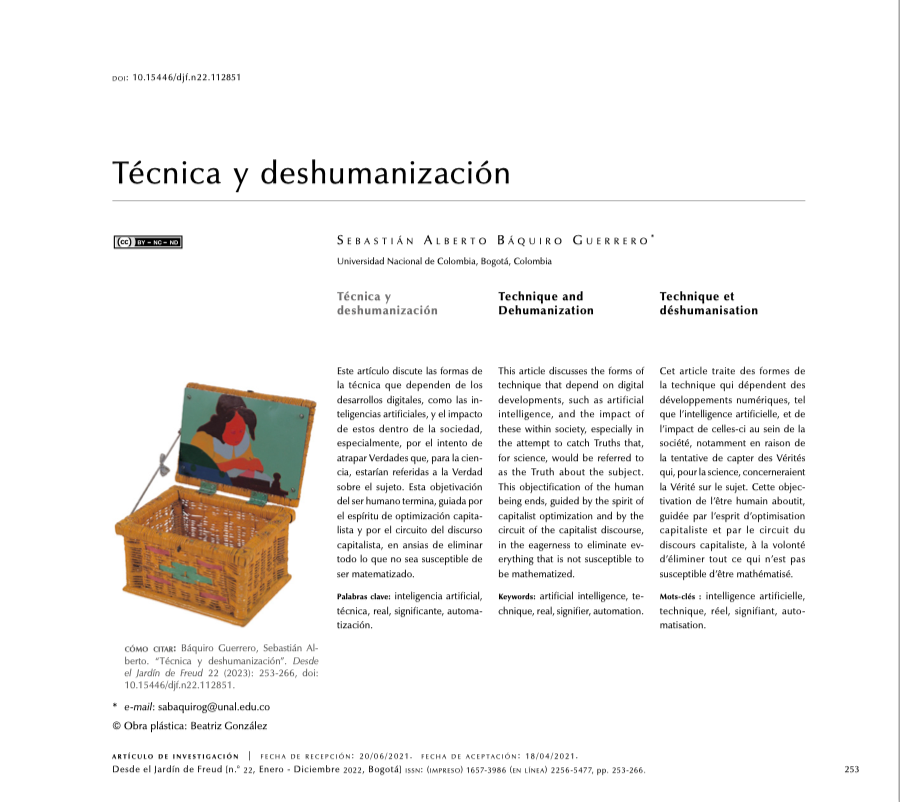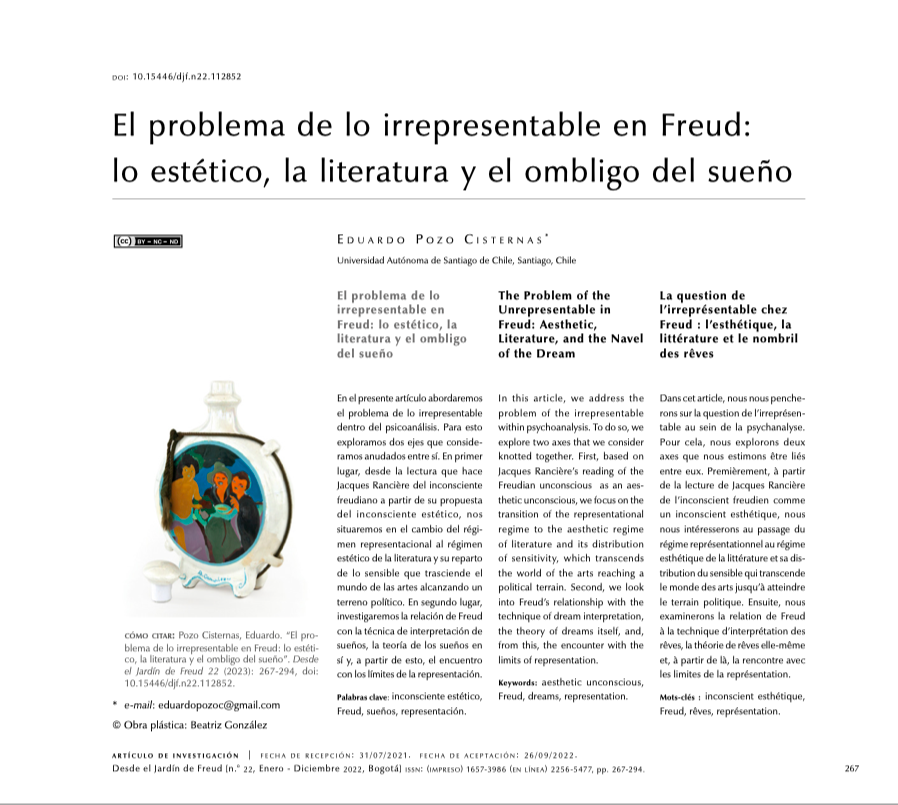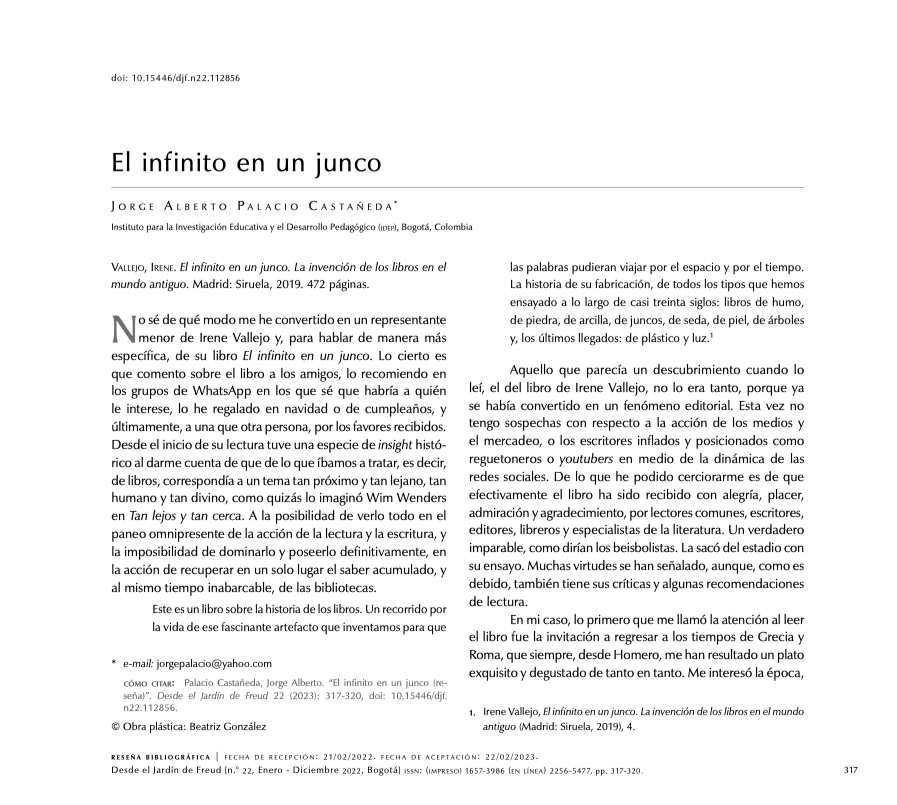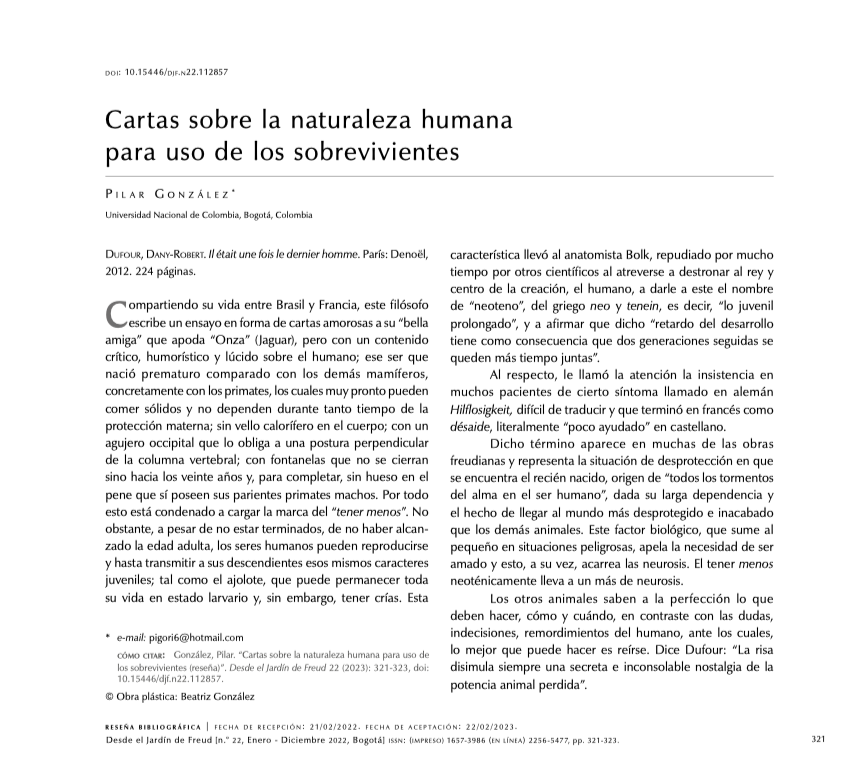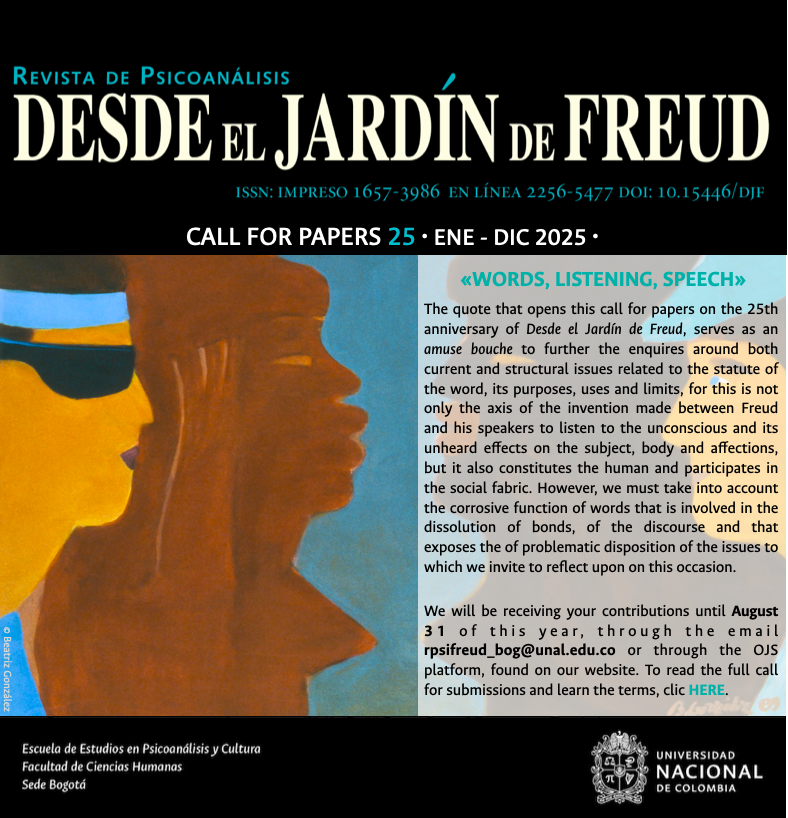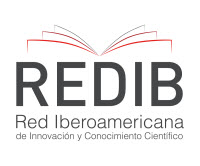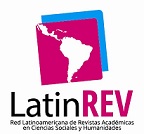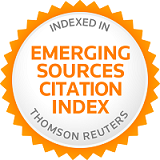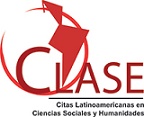No. 22 (2022): «THE RISK OF THE HUMAN»
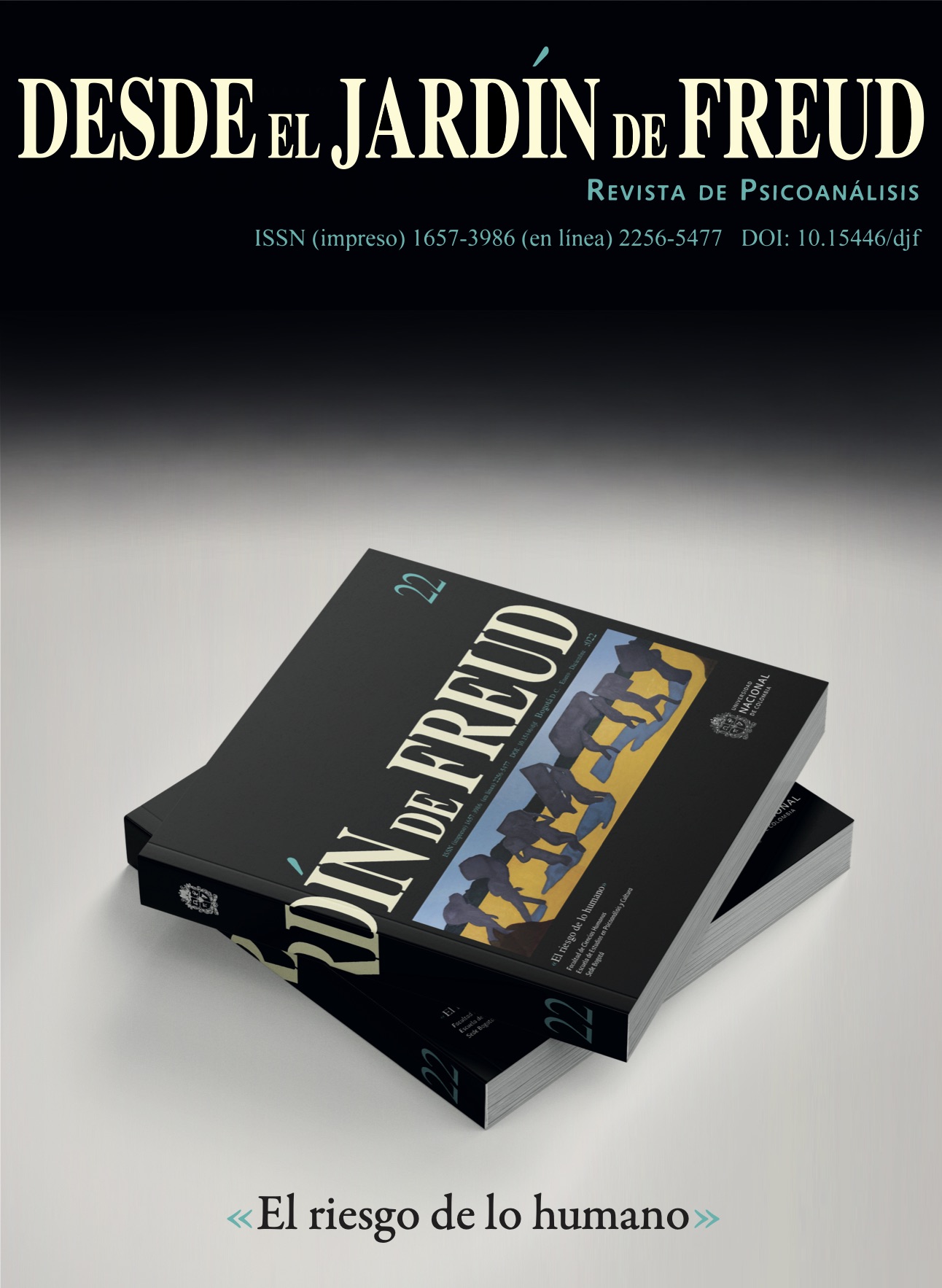
If the objects with which we have surrounded ourselves to make existence more bearable suffocate to the point that these are the ones that govern us now and those that set our course of possibilities and limits, can psychoanalysis shine its flashlight to warn if that is the case? How could we be throwing the child out with the bathwater? But, in order not to neglect the insufficiency contained in mere denunciation, we wanted to take this consultation to such a point that it is necessary to ask psychoanalysts if they have anything to propose. When Lacan faced the request of the students of the turbulent 1960s, who requested clarifications to better support their spontaneous opposition to the political and economic regime, he responded with the writing of the four speeches that form a social bond and assured them that these structures could go down to the streets. This was indigestible given the pressure of time. Today, when psychoanalysts have examined psychoanalytic discourse in a thousand ways, when they have noticed its relationship with the discourse of the master, and when they have been able to repeatedly confirm in the clinic the ravages of capitalist discourse, ravages that fall on desire and castration, In the symptom and in the enjoyment, in the social bond and in otherness, can it be said what the analyst's discourse could contribute to the opening of routes of social bond without detriment to the risks that humanity imposes?
The notion of risk assumes that human action has generated the phenomena we face, phenomena that could also be avoided through the same action, which would frame this in what would not be necessary, but not impossible either. We live in a society at risk, sociologists have affirmed since the mid-1980s, which has allowed them to highlight the paradoxes that instrumental technical development entails: “the control of nature makes the control of nature impossible”; and, in terms of the relationship between science and politics, the idea that the certainties that science provided in place of religion quickly crumble, with which, furthermore, the swarm of returning religions advances by leaps and bounds, as time precisely to occupy the empty space left by current discourse by dispensing with all otherness. This is also of crucial importance for psychoanalysis in its insistence on the category of Other, beyond the imaginary othernesses in which it gets lost.
Between optimists and pessimists, between the “intelligence of pessimism” and the “optimism of happiness”, perhaps it is time that gives greater urgency to the question of the risk of what is human. Time, eminently human, if we still experience it, seems to collapse today, and with it, the subject himself, lost among countless objects of which he himself is a part.




